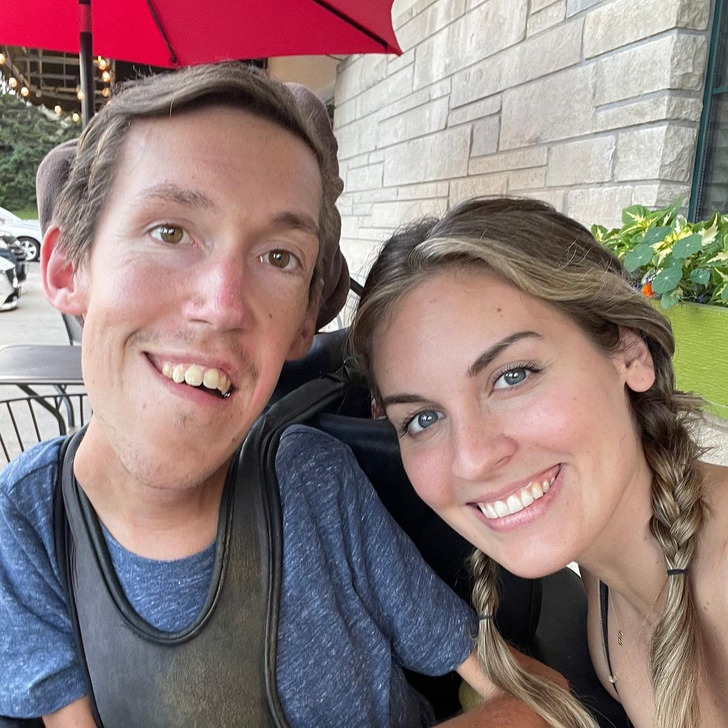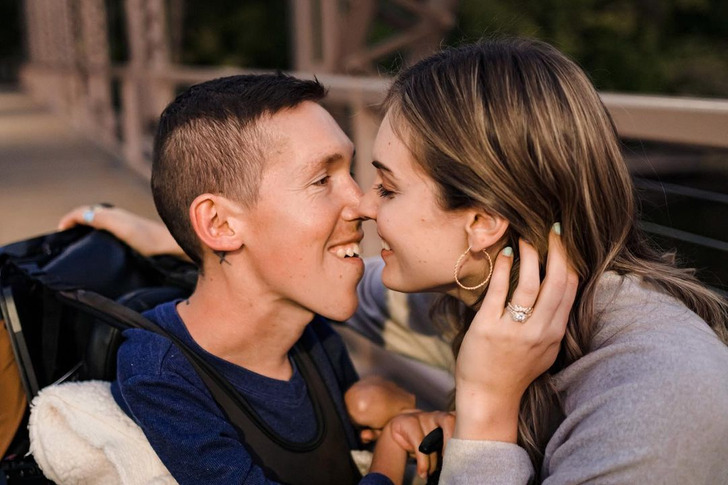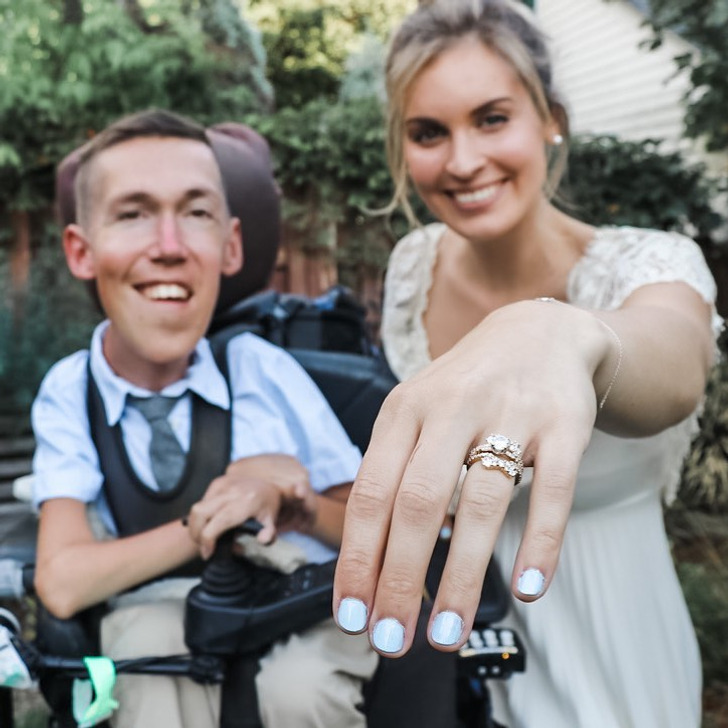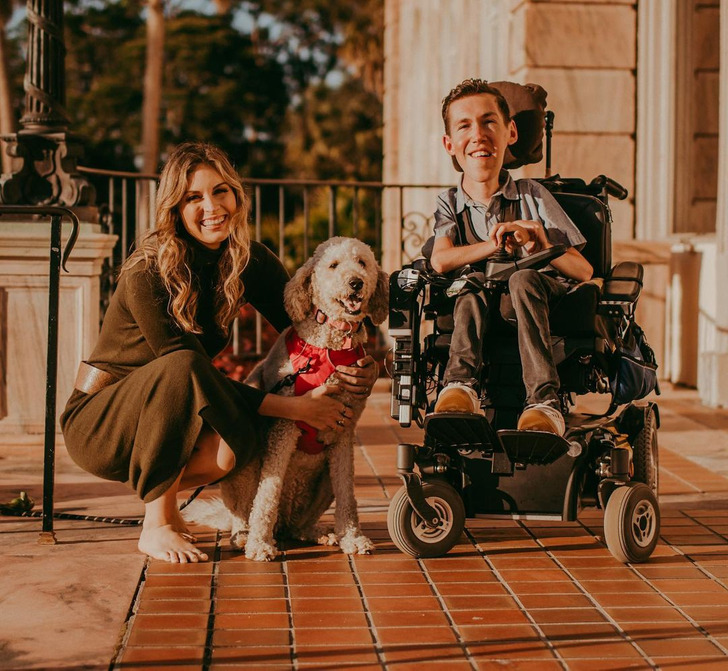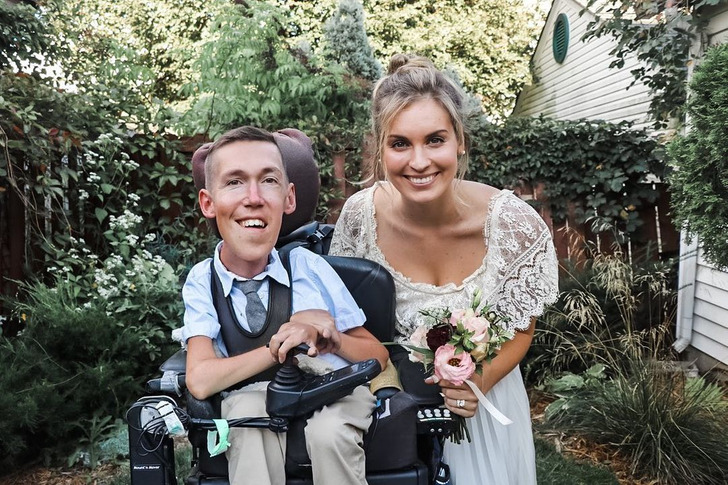“Our Life Is Normal and Silly and Fun”. Interabled Сouple Are Happy Together, Despite What Many People Don’t Believe
Hannah Aylward and Shane Burcaw, two YouTubers, are well-acquainted with individuals making false and often outlandish assumptions about their romantic partnership. Being a couple where one person has a physical disability and the other does not, and sharing their daily lives online, they have been subjected to ableist and unkind remarks regarding the authenticity of their marriage.
Burcaw, who has spinal muscular atrophy, a genetic disorder shared on TODAY that many people have not witnessed a relationship similar to theirs before. Through sharing their lives with the world, they aim to make interabled relationships more normal and to demonstrate that their love is just as genuine, fulfilling, and exhilarating as any other kind.
After dating for four years, the couple got married in September of last year and use their highly successful YouTube channel, Squirmy and Grubs, to showcase the realities of an interabled relationship. By doing so, they hope to simplify the lives of other couples who find themselves in similar circumstances. Burcaw mentioned that as their YouTube channel has gained popularity, many couples in comparable situations have contacted them. He added, «Hannah and I are not extraordinary. It turns out that people with disabilities are still human, with emotional needs and desires similar to anyone else!»
Burcaw shared that they receive messages every day from interabled couples, and the messages all share a common theme: «Our relationship feels so ordinary! Why can’t everyone else see that?» A few years ago Aylward disclosed that people frequently struggle to believe that she is in a romantic relationship with Burcaw. In 2019, she said, «When we go out in public, people never think I’m his girlfriend. I’m always presumed to be his sister, mom, or nurse. They also speak condescendingly to him. Therefore, we grew tired of this occurrence and wanted to spread awareness about it.»
According to the couple, they first connected online when Aylward came across a YouTube video featuring Burcaw discussing his disability. She sent him a somewhat flirtatious email, and before they knew it, they were in a long-distance relationship. Following two years of long-distance dating, Burcaw relocated to Minneapolis to live with Aylward while she completed her college education. As a married couple, they are more confident than ever in their commitment to each other, which they claim aids them in disregarding unkind remarks.
In an interview with PEOPLE after their virtual wedding last year, Aylward commented, «We’re not new to receiving negative comments. I assumed that once we were married, people would acknowledge that our relationship is genuine. We previously received comments stating that our relationship is fabricated for publicity, or that I am only with him for money or YouTube followers.» Burcaw stated that, despite enduring ableism in the form of mean comments, he and his new wife are content with the understanding that his disability does not diminish his value as a partner to her. «There’s a common underlying perception in our society that individuals with disabilities are not deserving or valuable as romantic partners,» he added.
Burcaw emphasized that «in our situation, that’s not the case at all. We want to demonstrate to others that our life is ordinary and filled with humor and enjoyment, and that while disability creates difficulties, it doesn’t limit our existence.» Aylward contributed, «When we receive derogatory comments, we remind ourselves that we are the sole authorities on our relationship. We know the truth, and it makes it simpler to disregard the people who are being unkind and focus on ourselves.» The couple has disclosed that they plan to start a family at some point but are not quite ready yet. Aylward stated, «We do want to have children, but we’re not ready yet.» Burcaw supplemented, «We go back and forth. One week we’re like, ’Let’s do it!’ And then the following week we’re like, ’Why did we think we were prepared?’»
